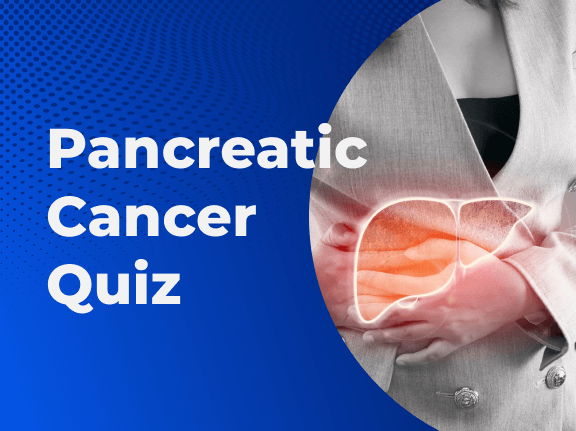
Prostate Cancer Quiz
This online assessment takes only 2 minutes. It will help you find the right clinical trials for you.

Fiona Evans
We ask this to determine which clinical trials you may be eligible for.
If you need to contact us right away?
Call +1 844 627 7246Your personal data is fully confidential and 100% secure
The Prostate Cancer Quiz describes that a walnut-sized gland, the prostate, is a part of the reproductive system that works to supply and transport semen. Most men develop an enlarged prostate or benign prostate hyperplasia by age 80. Early detection and prognosis of prostate cancer with immediate remedy can often efficiently treat or manage the illness. The prostate is positioned beneath the bladder and consists of glands and ducts embedded in muscle fibers.
What are the Risk Factors for Prostate Cancer?
The Prostate Cancer Quiz explains the leading risk factor for prostate cancer is being over the age of 65. About 60% of all cases of prostate cancer are diagnosed in males 65 and older, and the most common age of diagnosis is 66. Other risk components for prostate cancer include ethnicity, African American and Caribbean males have an increased risk compared to men of other races. Smoking does not increase one’s risk of getting prostate most cancers, but some research has found that it could increase the mortality rate for prostate cancer. Most men are identified with prostate cancer when it’s still at an early stage, is small, and has not spread.
Family history and inherited genes are other risk factors for prostate cancer. Of all your relations, a brother with prostate cancer will increase your risk the most. If you have brother with prostate cancer, you should discuss with your physician when to get screened for prostate.
How is Prostate Cancer Diagnosed?
Prostate-Specific Antigen (PSA) is a protein produced by the prostate and excessive ranges found in the blood during a PSA test may indicate prostate cancer. Part of the physical exam involves a digital rectal examination, in which a physician inserts a finger into the rectum to feel the prostate gland.
Most men with PSA levels greater than 4 don’t have prostate cancer. If your doctor doesn’t feel any prostate irregularities during the rectal examination, the chance of prostate cancer is less than one in three. Physicians recommend all men over fifty to get a PSA blood test for early detection of prostate cancer.
Most cases of early stage prostate cancer do not cause symptoms, which makes screening crucial to early detection. Small cell prostate cancer can’t be detected by PSA checks; therefore cases of this subtype are typically diagnosed in advanced stages after spreading to other organs or parts of the body.
Almost Done!
Please complete the required fields and we will send results to your email.
You have completed the quiz.
0 out 0 answers are correct

We ask this to determine which clinical trials you may be eligible for.
Fiona Evans Massive Bio Patient Relations CoordinatorIf you need to contact us right away?
Call +1 844 627 7246Your personal data is fully confidential and 100% secure








